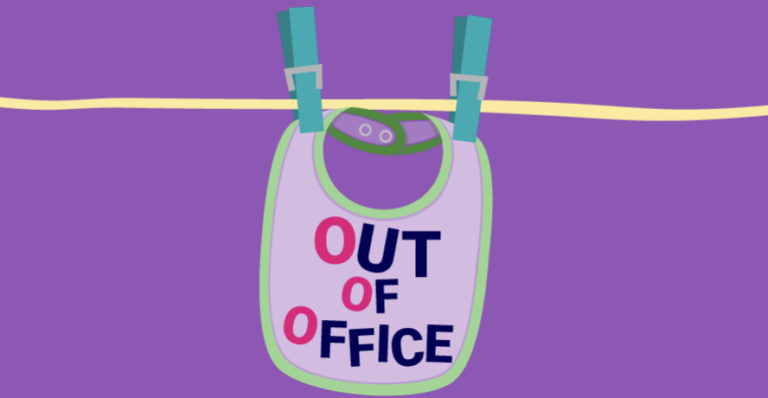Why Are The Greens Enabling Private Property Developers?
STEPHEN MINTO’S POST throws into sharp relief the utter collapse of ideological credibility within the New Zealand Greens. That the Greens could openly align themselves with private property developers, and facilitate the transfer of public wealth into the hands of capitalist entrepreneurs, is astonishing. About the only upside to this extraordinary betrayal of everything Green politics stands for is that it proves conclusively that whatever this party’s MPs might call themselves, they are NOT Greens – and now everybody knows it.
The question that stands in the most urgent need of an answer is – how could this happen? In fewer than 20 years, the New Zealand Greens have degenerated from a vibrant parliamentary party that commanded respect from even its staunchest ideological foes, to a collection of slogan-shouters who, when challenged, cannot explain what their slogans mean, or why they are shouting them. Understanding how political fashion was able to triumph over political coherence in the contemporary Green Party, is critical to rebuilding the eco-socialist movement this country so desperately needs to combat the effects of climate change.
A big part of the answer is generational.
The original Greens, the “magnificent seven” who ran up the steps of Parliament in 1999, were Baby Boomers. Between them they represented just about all of the key political, social, and environmental movements that had defined progressive New Zealand politics between 1965-1985. With one exception. The “magnificent seven” did not include a representative of the Māori struggle for tino rangatiratanga. Green Party politics, like the politics of the Values Party which preceded it, was a product of the “Peak Pakeha” era. Its coherence would not survive the impact of the Māori Renaissance and the re-birth of te Tiriti o Waitangi.
Politicians who had won their spurs in the Peak Pakeha era were sufficiently ideologically grounded to ride the wild storms of Treaty politics. The Green Boomers adapted to the new cultural and political protocols of Māori nationalism, but they did not succumb to them.
The same could not be said for the younger Greens. Raised in an era of rising cultural uncertainties and conflicts, they lacked a solid place to stand. This made them much less confident – ideologically, emotionally and spiritually – than their elders. Compared to the rising generation of politically assertive Māori, the young Pakeha Greens were weak.
And weakness breeds resentment. Like so many of those who were born after the Boomers, the younger Greens found themselves living in a world radically different from their parents’ and grandparents’. With little or no personal memories of the New Zealand before neoliberalism, they found it easier to attribute their generational predicament: student loans, unaffordable housing, precarious employment; to Boomer selfishness.
The generation who had been given it all, had decided, cruelly, to keep it all. Such was the claim. That it was a middle-class-Pakeha delusion largely escaped the Boomers’ young accusers. A forgivable failure, given neoliberalism’s extraordinary success at rendering class oppression invisible. Throw into this dangerous mental mix the guilty feelings of “White Privilege” heaped upon young progressive Pakeha activists, and it’s easy to grasp what made the Boomers such a tempting scapegoat.
All these Boomers living in their Victorian and Edwardian villas, with their bright cottage gardens, cosy firepits, and mature trees. So smug. So determined to keep their “heritage” neighbourhoods unsullied. So well-versed in the arcane arts of nimbyism. And so many poor people (their own kids included!) in need of warm, dry, affordable housing. Not that the Boomers gave a damn – they had everything they needed.
Not for long! Young Green activists, working hand-in-glove with their progressive comrades in Central Government, were determined to burst these selfish Boomer bubbles of privilege. Legislation would be passed that effectively made it impossible to say “Not in my back-yard!” The luckiest generation had run out of luck. The Boomers were about to discover what it feels like to be on the receiving end of unbridled state power.
And yet, as Minto so clearly points out, these young Green activists at the end of the generational alphabet have turned out to be as ignorant of capitalist economics as they are of capitalist politics. Arming oneself with all the coercive powers of the state is no guarantee that what emerges from the planning process will be to the advantage of the poor.
For the poor to benefit from state intervention, they must first attain direct influence over how, and on whose behalf, the state intervenes. But, what was true of the First Labour Government and its state-housing programme, is not true of Jacinda’s government of “kindness”. The poor have absolutely no control, and virtually no influence, over the modern Labour Party. If they did, would they really be asking private property developers to build them affordable houses? If they did, would we really have had the debacle of KiwiBuild?
The four guiding principles of the international Green movement: ecological wisdom, social justice, participatory democracy, nonviolence; are there to prevent party organisations from arriving at the same arid destination as the parties of social-democracy.
Had the Greens been guided by considerations of social justice and participatory democracy they would have not looked up for the power they needed, they would have looked down. Had they been wise, they would have recognised that cities, too, have their own ecologies, and that these are as worthy of conservation as forests and rivers. They most certainly would have recoiled from the prospect of relying upon the institutional violence of legal coercion to bulldoze a path to their objectives.
Sadly, they weren’t guided by any of these principles. Sadder still, the decision of the Greens to throw in their lot with private property developers makes it clear that the poor have no more control, no more influence, over the modern Green Party than they do over the modern Labour Party.
If they did, then the probability is high that they would have insisted on having a strong hands-on presence in the planning, design, and construction of affordable homes. It is equally likely that the whole exercise would not have been geared towards private profit, but to the fulfilment of proven public need.
It is also a pretty safe bet that the Greens’ housing programme would have amounted to something more than an elaborate excuse for getting back at Mum and Dad.







Well I am surprised that from all these comments not one points out that the basic point of Chris’s post is to compare a policy of funding property developers to build housing now is somehow different from what te labour government did all those years ago when James Fletcher , New Zealand’s most successful property developer in history persuaded the then Labour government to contract him to build thousands of state houses. It set him up to form the huge Fletcher multinational that we all grew up with.
Please explain Chris what is the difference between then and now? In what way was funding a property developer to build housing then different from funding property developers to build houses now ?
D J S
Because somehow big executive and shareholder profits and not delivering services in the 21st century have become the mainstream. Thus corporates from pre 1980’s are a completely different beast to post 1980’s corporates. Not just in NZ – happening around the world as corporates buy up state assets cheaply, then selll them back as expensive services to the state.
“In 1996, the Ministry of Defence decided to sell off its housing stock. The financier Guy Hands bought it up in a deal that would make his investors billions – and have catastrophic consequences for both the military and the taxpayer.”
https://www.theguardian.com/news/2017/apr/25/mod-privatise-military-housing-disaster-guy-hands
Why Are The Greens Enabling Private Property Developers?
YES.
Have they made rents go up and become scarcer?
YES.
Do the taxpayers now have huge debts from more renters paying a fortune to private corporate ventures such as hotels and Compass stays?
YES.
Do students now die in student hostels but nobody discovers them, even as the corporate bills them for their stay while dead?
YES.
Are more and more working class and professionals leaving NZ as they are tired of stupid policy that helps few middle class people living here, in particular does not help mums and dads trying to get ahead and save, while spending everyones taxes on corporate subsidies?
YES.
Are people sick of the Greens pretending to help Maori with virtue signalling and Te reo, as their lives are worse and everyone elses by poorly thought out policy that they never deliver on and then go on to wreck something else?
YES.
Greens might not bully within their party, but they sure as hell like to bully those who don’t agree with their ideologies.
No different from National then Anker.
What public housing policy could have hoped to deal with that massive extra million people as we become the (fleeting) team of five million?
At its heart the current housing crisis is a failure of immigration policy.
And we still don’t have a coherent immigration policy from the Government.
And we still don’t have a coherent immigration policy from the Opposition.
A plague on all our houses…
Matt Well said, cleverly.
Agree Greywarbler, well said Matt.
Probably most of the successful NZs have either made their money from housing, dairy cows, property or modern tech. There is a life outside those main divisions but who cares? They can live where they please and it doesn’t please them to think about their fairytale lifestyle, like water striders*, while others plod on if they are committed to living amongst other ordinary persons. *https://www.youtube.com/watch?v=y-8i_HIwkkA
A man famous for making money is Graeme Hart, follow his advice and maybe you can get to be a billionaire.
https://www.rnz.co.nz/news/business/473298/graeme-hart-inducted-into-nz-business-hall-of-fame
Go on – get on wirh it what’s holding you back? Lack of clear goals from the first can mean that you don’t prepare yourself for life. And that is what you have to do, not wait for life to come to you. Making lots of money is not the task, it is being able to earn enough to manage and make a living for yourself. That’s hard today, to do that but looking at the empty RTD bottles out for collection indicates to me that some just squander much of their income. Hart was lucky that he had a father who’d help and the bank came forward too. But working right is then needed. He could have come a bumper.
Someone who showed initiative and came a bumper I think, dying at only 51. She deserves honouring. More than Hart, for the good she was trying to do, not just for the money that she might make and a bounteous life. I hope she did receive that.
2006 Beautiful tall poppy’ dies
https://www.nzherald.co.nz/nz/beautiful-tall-poppy-dies/R5LY4J735DPC2U3D7YIJYAB5ZI/
Larger-than-life entrepreneur Karroll Brent-Edmondson died in Auckland yesterday afternoon, aged 51, after a 14-month battle with cancer.
The award-winning businesswoman was behind the company KT Footwear, which hired long-term unemployed young Maori to make children’s shoes in South Auckland.
The former ward of the state – who learned how to read and write only after leaving school – set up the firm in 1991 after returning from Australia, where she ran restaurants and a soup kitchen for expatriate Maori.
Still this self-satisfied saying actually has a big lump of truth – ‘I’m often lucky, and the more I think and the more effort and work I put into my affairs, the luckier I get.’ So Hart saw opportunities and worked at them. He was poised and ready and in his element like the water strider. When NZ’s shell of complacency and regular union handouts and cost of living rises was fractured, he was among the other seagulls waiting to get some goodies.
IDEA – The seagull needs to be our logo bird, they are so us, like chips, cheeky and big individualists, but always ready for a handout – from the bennie level to the selling of state assets at marked down prices, and specially engineered low tenders winners.
(Kiwis need to be the logo for our Conservation and environment efforts, along with the Black Robin or Chatham Island Robin,* a triumph of careful preservation we should be proud of; also in he team – kakapo, kea and the albatross.)
* https://en.wikipedia.org/wiki/Black_robin – It was first described by Walter Buller in 1872
Excellent article Chris. Great point about the use of use of Boomer terminology as a distraction from the economics underneath. At heart the David Shaw leadership of co-option and co-operation means they have lost their foundation. I think he just saw it as sensible and pragmatic and it is anything but. Thank you.
James Shaw I think Stephen – careful or you will lose credibility. but i have noted that there seem a lot of Davids. I have quite gone off the name.
I’d be interested to know how the likes of Cloe, or Ricardo (just for example) really really feel about it all.
I keep thinking it really is just going to all play out. It has to before any sort of rebuilding can begin.
Let’s hope though, that after the ’23 result, various politicians don’t expect “us” – this team of 5 million – to feel any sympathy for them.
And in Labour, I wonder about some of their relatively intelligent beings. Nactoids are committed ideologues stuck in the old world, so they’re just going to have to disappear up their own arses where they definitely will expect the rest of “us” to feel sympathy for them.
I guess one day it might dawn on them that it’s time to change the cistern in which they operate. It gives me motivation to do my best to live into my 70s and 80s to watch it all. With a bit of luck I might be able to empty my colostomy bag on their places of burial. (THere’s hope @Countryboy). And good to see so far that a few of them have had their karma even if a few others have been casualties of their “pieces of work”.
It’d be a pleasure to return a tiny part of their shit
There will be no “team of 5 million” should Nact get in. The country will be divided into a them and us situation. People think crime is bad now, just wait until Nact get in, the crime rate will be 10 fold.
Whilst house prices are being corrected now and houses built, Nact will reverse that Stat as the have always done in power.
LOL that team of 5 million has worn really thin Bert. You’re part of the team unless you’re :
>a ‘dirty dairy’ farmer
>a tradie with a ute
>a boomer with a renter
>a gas station owner
>a supermarket owner
>refuse to get vaccinated
>or are of purely European descent
Bert there is already a them and us and I think that intensified under Labour
Has it really though?
Can you show me the comparable data for this?
Great article…good insight into the progression of Green’ …culture.
Agree 100% Chris.